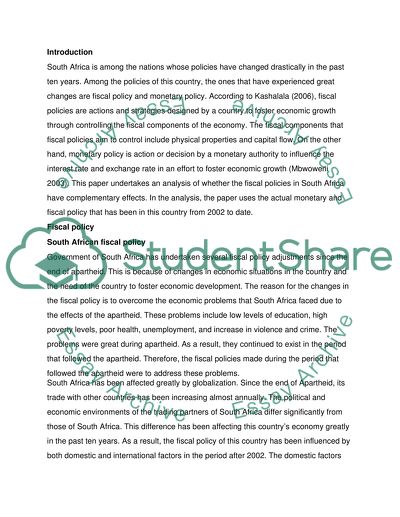Cite this document
(“Is South African fiscal and monetary policy complementary Essay”, n.d.)
Retrieved from https://studentshare.org/macro-microeconomics/1456858-is-south-african-fiscal-and-monetary-policy
Retrieved from https://studentshare.org/macro-microeconomics/1456858-is-south-african-fiscal-and-monetary-policy
(Is South African Fiscal and Monetary Policy Complementary Essay)
https://studentshare.org/macro-microeconomics/1456858-is-south-african-fiscal-and-monetary-policy.
https://studentshare.org/macro-microeconomics/1456858-is-south-african-fiscal-and-monetary-policy.
“Is South African Fiscal and Monetary Policy Complementary Essay”, n.d. https://studentshare.org/macro-microeconomics/1456858-is-south-african-fiscal-and-monetary-policy.


